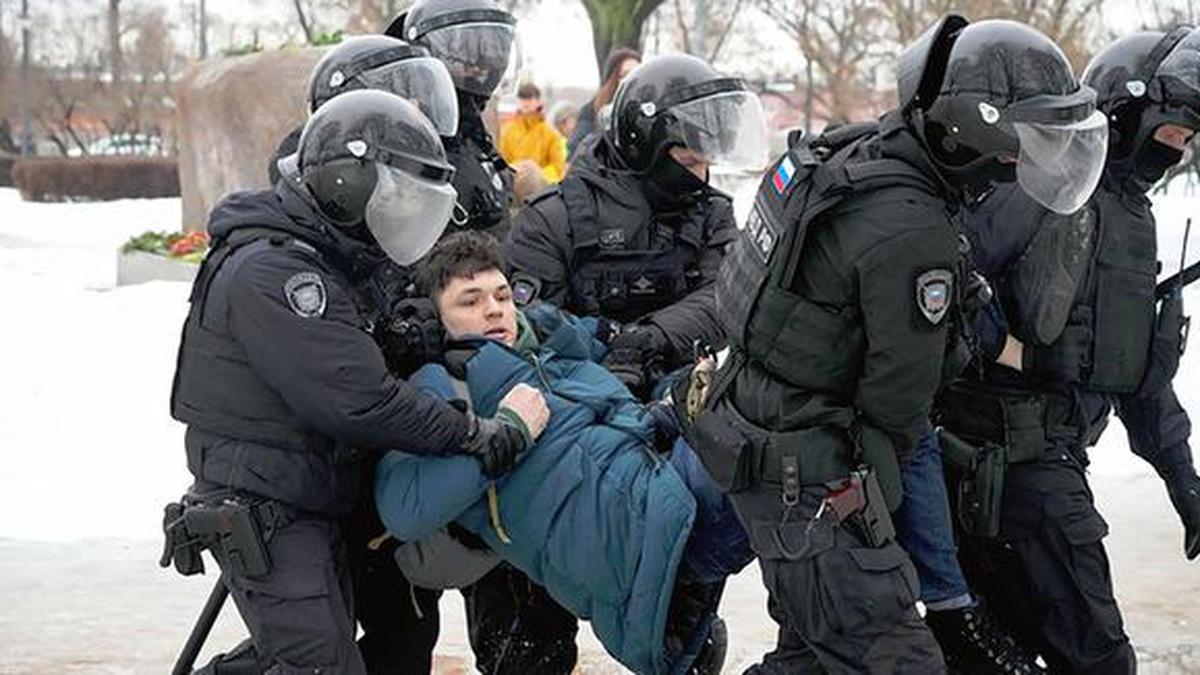
Crackdown on dissent becomes the hallmark of Putin’s 24 years in power
The Hindu
Estonia: From dissent to suppression, Russia under Putin evolves into a totalitarian state targeting political opponents and civil society.
When charismatic opposition leader Boris Nemtsov was gunned down on a bridge near the Kremlin in February 2015, more than 50,000 Muscovites expressed their shock and outrage the next day . Police stood aside as they rallied and chanted anti-government slogans.
Nine years later, stunned and angry Russians streamed into the streets on the night of February 16, when they heard that popular opposition politician Alexei Navalny had died in prison. But this time, those laying flowers at impromptu memorials in major cities were met by riot police, who arrested and dragged hundreds of them away.
In those intervening years, President Vladimir Putin’s Russia evolved from a country that tolerated some dissent to one that ruthlessly suppresses it. Arrests, trials and long prison terms — once rare — are commonplace, especially after Moscow invaded Ukraine.
Alongside its political opponents, the Kremlin now also targets rights groups, independent media and other members of civil-society organisations, LGBTQ+ activists and certain religious affiliations.
“Russia is no longer an authoritarian state — it is a totalitarian state,” said Oleg Orlov, co-chair of Memorial, the Russian human rights group that tracks political prisoners. “All these repressions are aimed at suppressing any independent expression about Russia’s political system, about the actions of the authorities, or any independent civil activists.”
A month after making that comment, the 70-year-old Orlov became one of his group’s own statistics: He was handcuffed and hauled out of a courtroom after being convicted of criticising the military over Ukraine and sentenced to 30 months in prison.
Memorial estimates nearly 680 political prisoners in Russia. Another group, OVD-Info, said in November that 1,141 people are behind bars on politically motivated charges, with over 400 others receiving other punishment and nearly 300 more under investigation.

The Karnataka government has drafted a comprehensive master plan for the integrated development of Kukke Subrahmanya temple, the State’s highest revenue-generating temple managed by the Hindu Religious Institutions and Charitable Endowments Department. The redevelopment initiative is estimated to cost around ₹254 crore and aims to enhance infrastructure and facilities for devotees.












